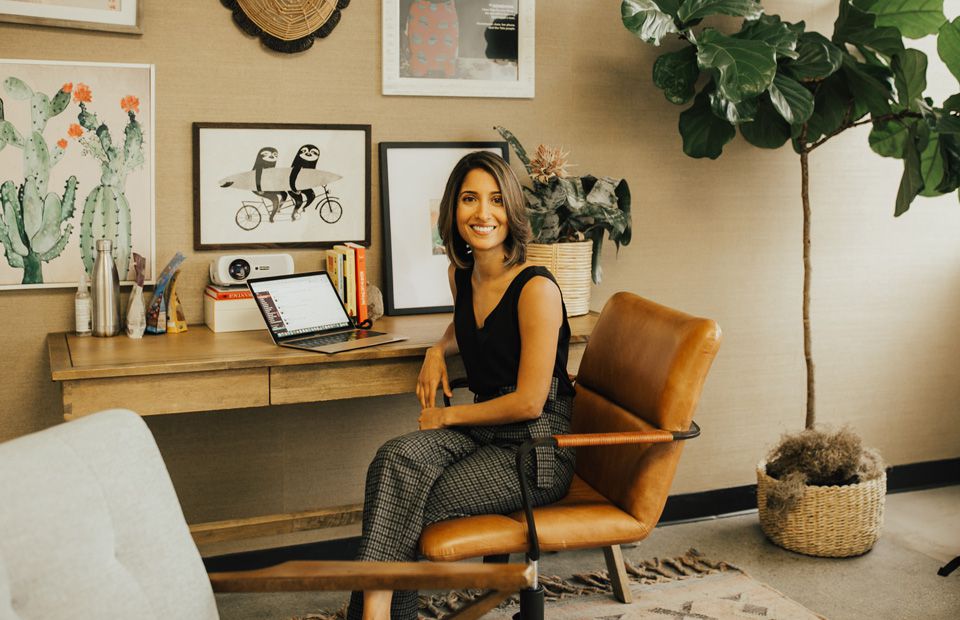Shivani Siroya is a rebel—an outsider in the entrepreneurial landscape. Siroya built a company whose founding pillar is "Radical Trust"—a "fundamental belief in people." As the founder and CEO of Tala, Siroya is fully invested in helping people through fast, personalized loans—oftentimes providing opportunities in the financial market that wouldn't be available to that person otherwise.
Siroya's journey to entrepreneur was shaped by her work as an analyst with the UN Population Fund, where she realized that lending money could empower people, could empower entire communities to thrive. Taking "risks" was no issue—because Siroya's priority in entrepreneurship is to solve a problem—compelled by the selfless intention of helping others. Learn the power of networking, her advice of women entrepreneurs, and why Siroya focuses on equity, not inclusion. Here's Siroya:
In my family, “work” has always been synonymous with doing something bigger than yourself, and finding something that you truly love and can pour yourself into. Growing up, I loved comics and wanted to be a superhero that could change the world. I saw this in my mother, a doctor, who allowed her patients come to see her on credit because she knew and trusted them—I learned early what credit and trust could mean for a person’s life.
I grew up in New York and spent a lot of my childhood in Rajasthan, India where my family lives which gave me a global perspective. Through these experiences, my parents taught us to understand how differing access to resources and opportunities can impact our ability to be successful, and affect the choice and control we have over our destinies.
Our careers present a significant opportunity to choose our own path, and with it, the impact we can have. My career moves reflect the two great loves in my professional life: numbers and people’s stories. I pursued investment banking after college as a means of fulfilling one of those obsessions. While it was educational and fast-paced, my heart wasn’t in it—and the gaps that I saw in the global financial system reinforced that I really wanted to be working with people and changing the financial system as a whole. Later, microfinance (and my work with the UN Population Fund) showed me what the key problem was—and the experiences I chose to pursue afterward helped me figure out how to solve it.
On Her Path to Entrepreneurship
After graduate school, I worked as an analyst with the UN Population Fund and conducted research across West and Sub-Saharan Africa to study microfinance and other economic development programs. I was spending a lot of time with small business owners, and became a walking Quickbooks for their lives. When some of them needed capital for their businesses but had no way to get it, I was so frustrated by the situation that I actually started lending to them myself.
One day, a friend asked me how I decided who to lend to. This was my first "aha moment"—I realized that I was sitting on troves of non-traditional data that told a story about people’s lives that I could use to make a lending decision. This was a financial relationship that I wanted to figure out how to replicate at scale. Eventually, I realized we that much of this same daily life data was recorded on consumers’ mobile phones. So we worked to build an app that could capture data that customers shared with us and turn it into a credit score.
On Entrepreneurship + Taking Risks
Entrepreneurship is indeed risky, but I set out to solve a problem, not start a company. I didn’t know if Tala would work or how long it would even last, or even that it would become a mobile technology company, but I was passionate about the challenge and knew I had to try.
I founded the company while working a full-time job, allowing me to also build up savings for when I needed to take the eventual leap. I’d work a full day in a corporate strategy role, and leave the office to work a full night with a scrappy team. As we started to see success in our approach and more people joined our initiative, the need to see ourselves as a company, and not just a scrappy team, developed. Having strong foundations is one way to de-risk the rapid growth journeys that startups often follow. Over the past few years, we took a step back, documented our history, and made moves to define our culture and the values that are foundational to our work. We’ve summarized this all in our founding principles, and a concept we call Radical Trust.
On Her Advice to Women Entrepreneurs
One of the key lessons I’ve learned is that I need to trust myself, our data, and our vision enough to take risks. In the journey from idea to the company, I’ve learned the importance of developing expertise and listening for insights. I’d recommend the following:
Do your homework. Understand the problem you’re trying to solve and then don’t assume that technology or social media is the way to solve it. I didn’t set out to build a tech startup, it just happened to be the best solution to the problem I wanted to solve. Technology is a means, not an end.
Identify your hypothesis and test it. The learnings that come from experimentation are invaluable, and technology offers a cost-effective and efficient system for reaching people and getting and measuring results.
Listen to your customers, and don’t come into the conversation assuming you already have the answers. If what they’re saying about your product or service is something you don’t want to hear, or hard to respond to, it’s in your best interest to listen. Your success depends on it.
On Networking + Why It's Key
No matter how passionate you are when starting a new venture, the reality is that it’s hard, and sometimes, lonely work. The fellowships I’m a part of have created a strong sense of community, where I can meet with other entrepreneurs and impact-driven leaders to share ideas and best practices to help each other get through hurdles that we’re all facing.
This, along with seeking out mentors, has been foundational for my growth. When launching Tala, called InVenture in the early days, I benefited from a long list of mentors, empathetic listeners, and general advice-givers and I wouldn’t be where I am today without them. I’d talk to anyone who was willing to listen, and even did cold outreach to nearly 1,500 people on LinkedIn if I thought their background or experience could be helpful to me. In the process, I became more open and collaborative, but I also learned to trust my own vision.
Pursue mentors you can learn from, and communities you can contribute to and grow with. Remember that mentorship and networking are most successful when you have a strong sense of purpose and confidence in your own abilities.
On Prioritizing Equity, Not Inclusion
Tala’s focus is actually on diversity & equity. While inclusion initiatives have been meaningful, I believe the next frontier is equity. This means less of a focus on ‘including’ people, which implies that one entity maintains power, but a focus on examining systems and working towards a full redistribution of power.
This is important to me because it’s the same belief Tala is founded upon: everyone deserves access to the same opportunities and resources so they can have a choice in their [financial] lives and control over their destinies. At Tala, our work is focused on reinventing the financial system, and it’s only made sense that our culture and the way we work should parallel this value. I also believe that our company’s diversity is the key to our ability to innovate and solve a critically-nuanced problem. People who grow up in New York cannot singlehandedly solve a problem for people who grow up in Nairobi. But when these two individuals have seats with equal influence at the same table, a true solution can form.
On Being an Outsider—And Thriving
I actually think most successful founders are rebels, of a sort. We’re trying to do new things and take on entrenched systems or ways of thinking. What makes me and our company different is that we’re outsiders; I don’t fit the profile of a stereotypical Silicon Valley founder, and our team is solving a problem and serving a customer base that is well outside of the SV bubble.
But we take pride in this outsider-ness and it fuels our desire to prove the potential of our business and our customers. The reality is that we are tackling a gigantic market opportunity—the billions of emerging middle-class consumers who have been overlooked and underserved by traditional finance. Like any founder pitching a vision, I heard a lot of “no’s”—there were plenty of investors who didn’t think the idea would work, who didn’t believe in these consumers, or who thought I was trying to run a nonprofit. But I’ve also been fortunate enough to find backers who see the opportunity the way we do and are excited by our vision.
On What's Next
Tala’s vision of global financial access, choice, and control is unchanging, but our mission, how we get there, evolves with our understanding of our customers and their needs. Right now, we’re focused on providing access to fair, flexible credit, and creating a community where our customers can connect with each other. Tomorrow, we may be providing other financial services on our platform or enabling our customers to transact more seamlessly with each other.
For my personal growth, I’ve been focused on leadership—both my own and other senior leaders at our company. We’re currently building out our executive team, which is an opportunity to define Tala for the long haul and determine how we want to look in 1, 5, even 20 years. I don’t want us to lose our ambition or all the qualities that got us to where we are today, but I also know that we need to grow in a way that provides a clear, stable path for all of our teams.
Walk us through what a typical week looks like for you.
Sunday: Sundays kick off the week for me since by Sunday night U.S. time it’s already Monday of several of our markets. If I’m not returning from a trip or grabbing dinner with a friend, I’m on a call with one of our country leads to catch up on upcoming opportunities.
Monday: Every Monday starts with a check-in with our head of global growth to touch base on priorities and review upcoming opportunities. We are actively hiring around our global offices, so I set aside time to meet and interview people that may be a great fit for our team.
After a full day of work, I head home to walk my dog, Sadie, and eat dinner. Then it’s back to my computer—and Slack— for a few more hours. I love reading and take a beat to dive into a novel to clear my head before going to sleep.
Tuesday: Favorite day of the week! Pro-tip: watch someone’s mouth when they say the word “Tuesday”—it’s just hilarious to me. Four out of five days of the week, I start the day with a HIIT training class in Santa Monica and head to the office afterward. I have a catch-up call with a board member or advisor to share updates and get feedback. Tuesdays are Lunch-N-Learn day at Tala HQ, so I grab lunch and hang out with our team in our town hall space. We hear presentations from outside speakers as well as Tala team members.
Wednesday: After a few calls, I like to take walks with any of our newly-hired team members. We go out to grab coffee or a quick bite, and swap stories about our careers, or what hobbies we keep outside of work.
At Tala, we have Wine-Down-Wednesdays, a dedicated happy hour-like time for cross-functional team members to catch up. Sometimes, these are themed nights with events like trivia or group beach clean up, or just time to swap jokes or a funny comment someone received from a customer that day. I often have in-person meetings or events in San Francisco or New York, so I head to LAX for an evening flight.
Thursday: No matter what town I’m in, I try to find the best coffee! When in New York, I prefer Cafe Grumpy, which is close to the block I grew up on.
Friday: I’ve recently started hosting “Ask Me Anythings” with our team, which also function as a mini-all hands meeting. On Friday afternoons, our Santa Monica team gathers in the town hall space and I answer any—literally any— question they may be curious about! Our global team members also send in questions via video and we record the session to make all of our global team members can have the same experience. After a couple more meetings, I head to Yoga class on Friday evenings.
Saturday: With a hectic work schedule, I try to maintain some balance and keep Saturdays to myself whenever possible. I like to find challenges outside of work as well, whether its a new hike, hobby, or workout, or exploring a new part of LA.

Who is your role model, and why?
My mom! She moved to The United States in her thirties, and built a life for our family that allowed me to have a meaningful childhood.
What do you look forward to each day?
I love being up early enough to see the sunrise, which I’ll catch on my walk to my favorite Santa Monica coffee shop.
Favorite place you’ve ever been (and why?)
Mount Batur—Bali—night hiking and incredible sunsets! Second-favorite is Udaipur, where I grew up.
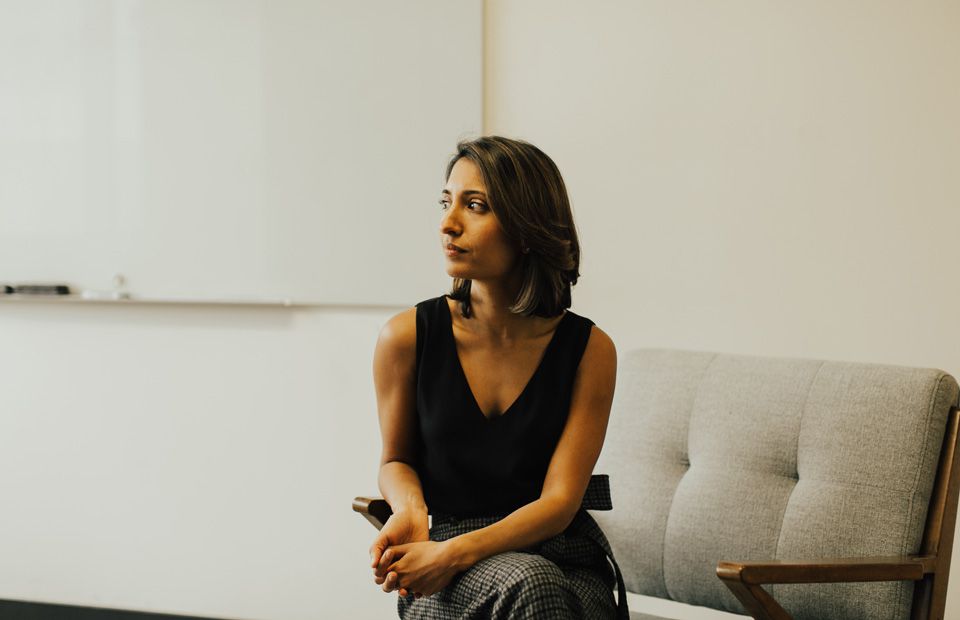
Best advice anyone ever gave you?
Probably my grandmother’s game of savings. She would encourage us to save first, pay bills second, then spend third. After that, we’d look again at how much else we could save, and reward ourselves by allotting a special budget for “joy-bringing” experiences.
Something in your bag that would surprise us?
Cayenne chili dark chocolate almonds—never leave home without my snacks, which usually include dark chocolate and almond butter.
Favorite place to grab happy hour/best lunch spot in Santa Monica?
I love going to Ester’s Wine Bar! It’s a team Tala favorite.
Best way to spend a weekend?
Being active and exploring new places! I balance that with finding some quiet time to reflect, recharge and get to inbox zero.
You May Also Like

Technology
Omoju Miller—Tech Veteran, Leader, and Volunteer Advisor to the Obama Administration—on The Crucial Role of Creativity in the Tech Industry
"If you are in an environment where you feel marginalized, leave. Don’t try to change it. Go and look for a place that sees you and lets you be you."
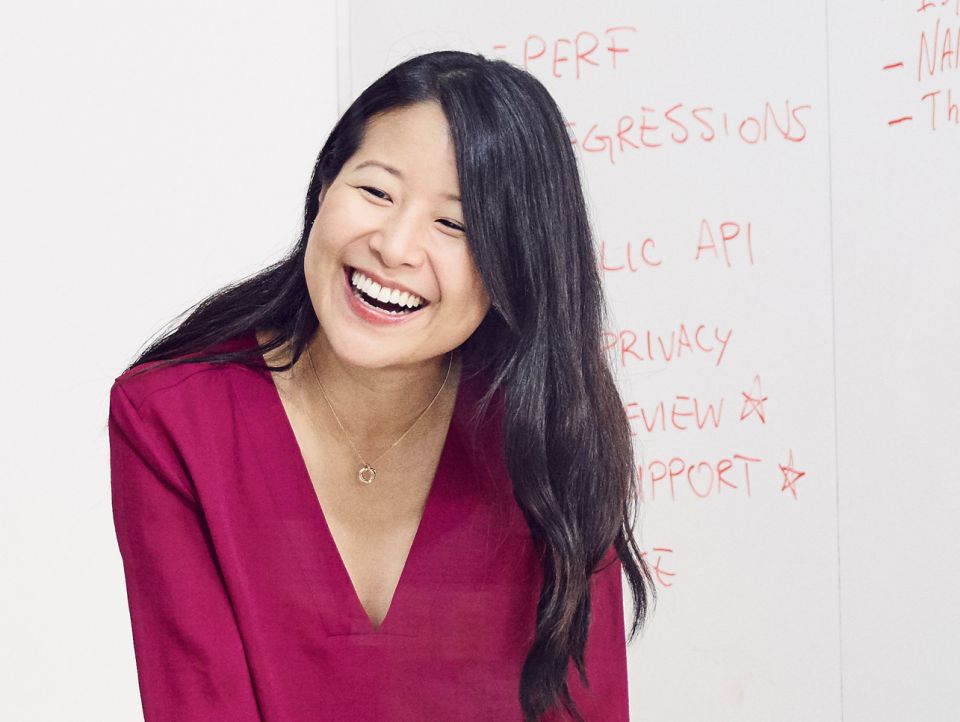
Technology
Sharing Stories as a Software Engineer
We sat down with Apple software engineer Emilie to learn about her day-to-day working at Apple along with what it takes to run the perfect meeting and her favorite ways to unwind.
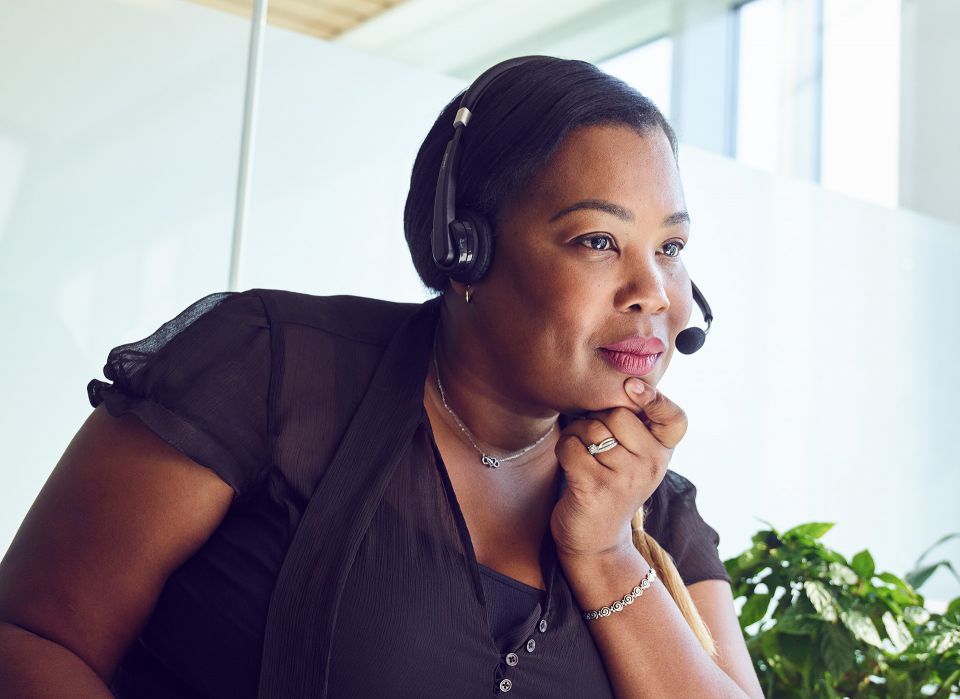
Technology
Creating Impact with Apple
We sat down with Apple's Senior Developer Partner Relations Advisor, Cris, to learn about what it takes to create a lasting impact within a large company. She shares a typical day in the life, her favorite book recommendations, and her top four tips to running a meeting.
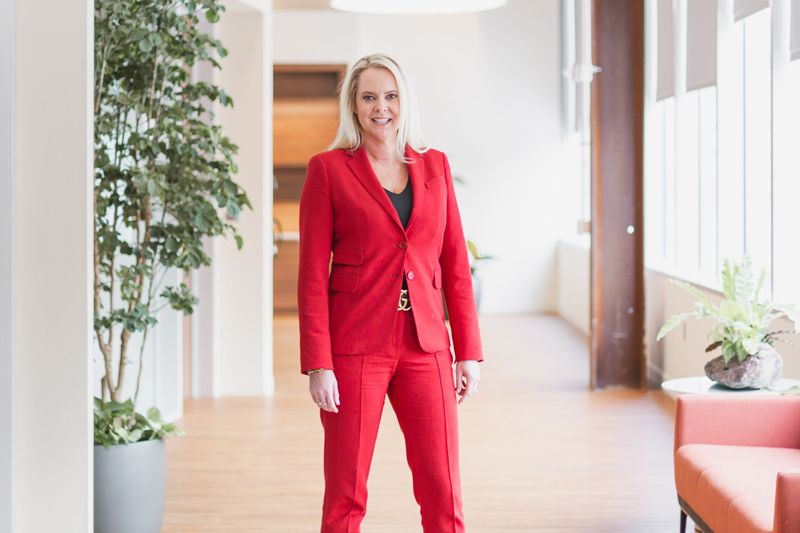
Technology
Salesforce’s Senior Vice President of Sales on Unconscious Bias, Failure, and Innovative Leadership
"Do not be afraid to fail, just bring your best self to the table."
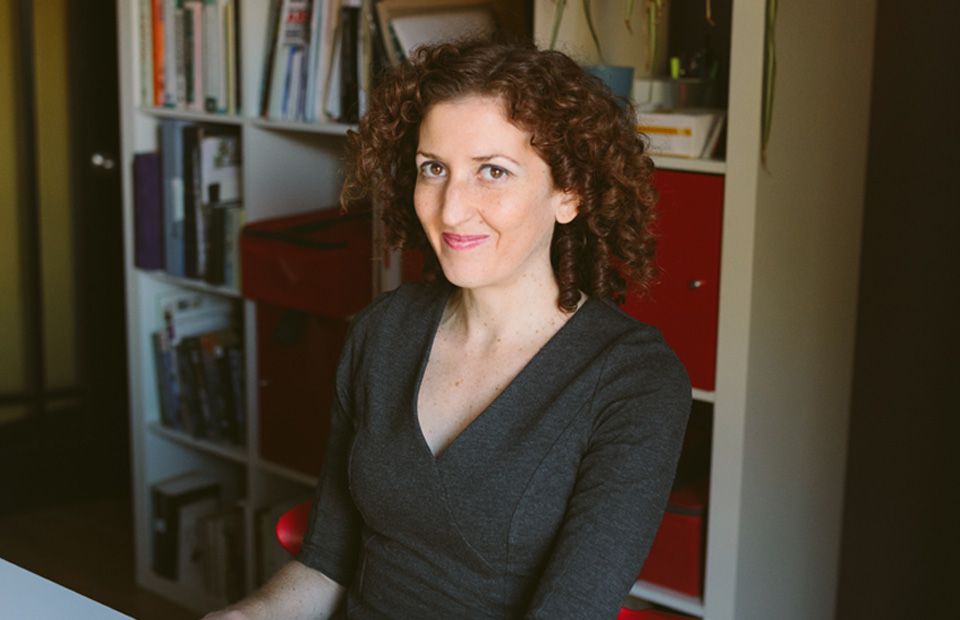
Technology
A Director of Engineering on Tech + Leadership
"I don’t believe in 'having it all'. If you spend more time on one thing, then you spend less time on another thing. All we can do is make choices on how to spend our time."
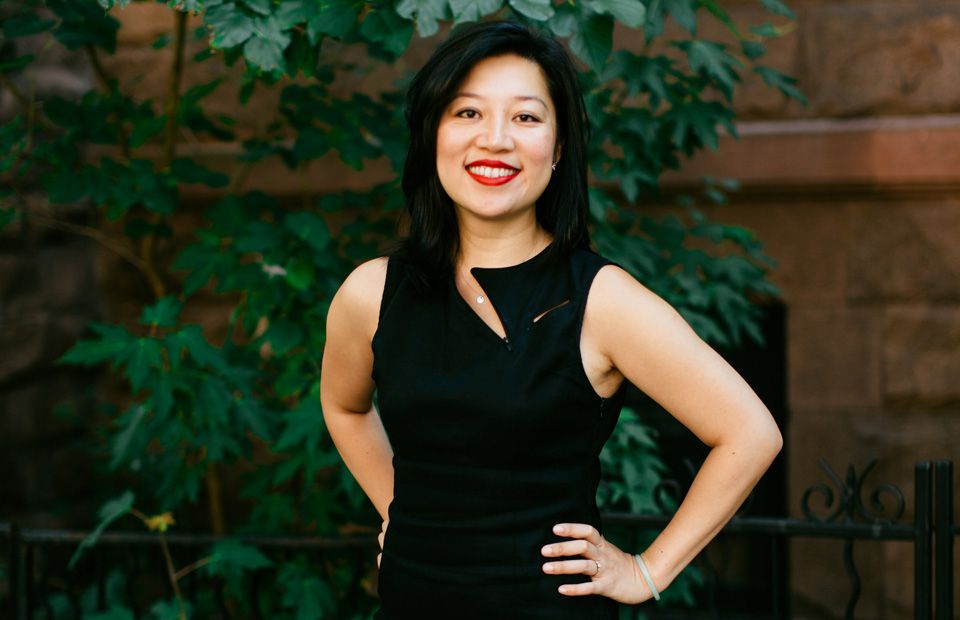
Technology
This Serial Entrepreneur's Motivation Is Completely Rooted in One Virtue—Empathy
"Fostering connections, empowering others, and actively contributing to a more diverse narrative are core to what I’ve dedicated my life to. The topics change as do the strategies, but the goal is the same."
Get the Best Career Advice Delivered To Your Inbox
Join our newsletter to stay in the loop.
